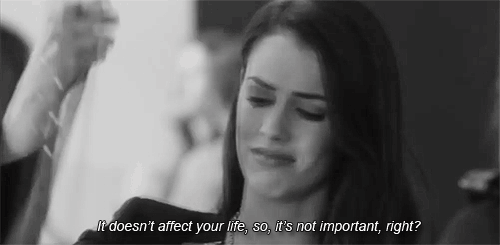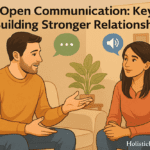Love & Relationship
16 Signs Of A Cheating Boyfriend In A Relationship
Published
4 years agoon
By
Andrea

Women get that instinct in their gut. Yeah, women have that superpower and they are too good at playing this gut instinct game. But if you are unsure or want accurate surety about your cheating boyfriend, you should probably know these 16 signs.
Table of Contents
- 1 16 signs that a man is cheating
- 1.1 1. He appears to be incredibly busy all of the time
- 1.2 2. He appears to be preoccupied
- 1.3 3. He squabbles with you over little matters
- 1.4 4. You have to cope with his mood swings all of the time
- 1.5 5. He believes he is unimportant
- 1.6 6. You find out he has a new email address or phone number
- 1.7 7. His habits have shifted without warning
- 1.8 8. Continually addressing someone…or not mentioning them at all
- 1.9 9. More or less sex
- 1.10 10. He quickly picks up his phone. a lot more than normal
- 1.11 11. “Why can’t you be more daring or fun?” he says, for example
- 1.12 12. He isn’t looking for your approval any longer
- 1.13 13. You get information about him from someone else
- 1.14 14. Reduced communication
- 1.15 15. You are receiving occasional gifts
- 1.16 16. Your friends have probably sensed it
- 2 What to do when you think your boyfriend is cheating on you?
16 signs that a man is cheating
1. He appears to be incredibly busy all of the time
You are the only one who knows everything there is to know about your lover. You’re aware of everything that’s going on in his life, from his huge goals to his day-to-day duties.
If he’s still in school, you’re familiar with his classes; if he’s employed, you’re familiar with his typical work environment.
However, everything seems to be on overload these days. There’s always a crisis at work that he and he alone must manage, or he’s been assigned new classes with slave-driving teachers. That’s what a cheating boyfriend says, at least.
2. He appears to be preoccupied
When he cheats on you, he hardly looks you in the eyes. Because he isn’t paying attention, you find yourself repeating things to him.
He has a hard time staying in the conversation and is constantly staring behind you. If he’s cheating on you, you’ll notice he’s cut himself apart from your relationship in a variety of ways.
“If your partner’s actions start altering, it could be an indication of infidelity,” says family therapist David Klow.
3. He squabbles with you over little matters
Nobody’s relationship is perfect, and anyone who claims they never quarrel or argue with their partner is lying. L
ittle quarrels here and there (and even some major ones) are all part of the relationship experience, but at the end of the day, both of you should seek to understand each other better.
However, if your boyfriend is cheating, seems to fight you more than he used to, and the arguments he chooses seem to be over the tiniest and most insignificant issues.
4. You have to cope with his mood swings all of the time


As we discussed earlier, your partner seems to have developed a habit of emotionally manipulating you by picking conflicts over trivial matters.
However, it’s important to note that his mood isn’t always one of rage and frustration. There are times when he’s back to his old, loving self and may even be more affectionate than before. This inconsistency in his behavior may leave you wondering about his true feelings towards you.
Does he despise you or adore you?
The answer is not so straightforward. Your partner may have loved you at one point, but now that he’s playing around with another female, his emotions are all out of whack. He’s up and down about his feelings for you, and he’s never truly stable about it. The emotional manipulation and playing with your feelings can make it difficult to know where you stand in his eyes.
5. He believes he is unimportant
If you make your partner feel unimportant to you, he’ll probably start seeking someone else. Feeling indispensable to a woman is frequently what distinguishes “like” from “love” for a male. And feeling unimportant is a common catalyst for withdrawing and even cheating.
Don’t get me wrong: your boyfriend admires your strength and ability to be self-sufficient.
However, he still wants to be wanted and valuable, not disposable! This is because men are born with an innate longing for something “higher” than love or sex. It’s why guys who appear to have the “ideal girlfriend” are nevertheless unsatisfied and are always looking for something else—or, worse, someone else.
6. You find out he has a new email address or phone number
The importance of privacy between couples cannot be overstated. After all, you have your own lives, social circles, and activities to attend to.
It doesn’t always indicate they’re cheating if you don’t have access to their phones or social media accounts. Good limits are what distinguish healthy from unhealthy relationships.
However, there is such a thing as having too much privacy. It’s understandable to want to keep your social media presence private, but it’s not understandable to discover duplicate profiles of him, possibly under a different name.
It’s acceptable that they don’t have access to their email address, but it’s a red flag if his credit statements are sent to a different address.
7. His habits have shifted without warning
It’s hard to be unaware of your one and only boyfriend’s routines and habits, so when they abruptly alter, it’s cause for concern. Humans are creatures of habit, and whether we like it or not, we all fall into a set of daily or weekly patterns. So, is your guy up to something new or different now?
Consider what his routines were in the past and what they are now. Instead of leaving for work at 7 a.m. and returning at 6 p.m., he now leaves at 5 a.m. and returns at 8 p.m. You don’t think his time makes as much sense as it used to.
8. Continually addressing someone…or not mentioning them at all
When you’re in love with someone, you tend to talk about them often, often without realizing it.
If your boyfriend is cheating on you, it’s a strange irony that he can wind up ‘telling’ you about it by constantly talking about his new interest. If the name of a lady keeps coming up in conversation, you should be cautious.
When this happens, it’s usually a coworker or someone he meets in a completely unrelated situation, which means he has no idea that chatting about them is unusual. He isn’t thinking about the other woman; he is only thinking about work.
9. More or less sex
If your partner is attracted to another woman and has sex with her, he will most likely change how he has sex with you.
If they cheat on you, some guys will refuse to have sex with you. They may even believe that having sex with you is ‘cheating’ on them.
Or they may have simply lost interest since they are preoccupied with something else. Consider why he stopped initiating and began to avoid circumstances where you would initiate (such as early nights).
When they’re cheating, other men will crave sex even more. Having more sex means it’s on their mind, regardless of who they’re with.
10. He quickly picks up his phone. a lot more than normal
Smartphones make it easier to cheat, but they also make it easier to catch cheaters. A shift in your boyfriend’s phone usage is a strong indicator that he’s cheating.
If your partner seems to be on his phone a lot more than normal, he could be playing a game or checking business emails. Inquire casually as to why he always appears to be holding it in his hand. His reaction will reveal a lot about whether or not he is a cheater.
11. “Why can’t you be more daring or fun?” he says, for example
If he starts focusing on the relationship’s perceived shortcomings, it’s an indication of adultery. He might be annoyed that you’re not the same as the woman with whom he’s having an affair.
This is especially true if he starts to question why you’re not having enough fun or why you’re not experimenting enough in the bedroom.
Even if it’s merely an affair, any relationship can start filthy and passionate. In his view, he is blaming his unfaithful habits on you, therefore focusing on your defects could be a sign of hatred against you.
12. He isn’t looking for your approval any longer


He doesn’t go out of his way to make you happy or special. It’s as if he doesn’t give a damn what you think of him.
You’ll occasionally see him wearing that shirt you used to love on one of his mystery boys’ night outs. It’s not that he’s given up on growing as a person; it’s that he’s given up on growing for you. If his conduct has suddenly gone from wanting to please you to not care what you think, he’s probably looking for affirmation somewhere else.
He no longer feels the need to please you and work hard in your relationship because he is obtaining approval elsewhere.
13. You get information about him from someone else
You were the first to learn about promotions at work or the vexing incident that occurred during lunch. For a while, your relationship appeared to be entirely open. Because he honestly (and enthusiastically) revealed what was going on in his life, you knew what was going on in his day.
Obtaining information from him now appears to be impossible. He isn’t as forthcoming with information as you would like, and you frequently feel out of the loop.
You’d learn new details about his life through pals or (worse) when he spilled them on purpose. It’s as though he’s told these stories to someone else before, but it just so happens that it wasn’t you.
14. Reduced communication
Have you ever been in a situation where you’re sitting in the same room as your partner, but there’s no communication between you?
You both spend hours on your phones, doing something completely unrelated, and it feels like you might as well be alone. To make matters worse, your partner seems more interested in what’s going on with their phone than being present with you.
It can be frustrating and disheartening when you’re physically together, but emotionally distant. If this situation continues, it may be time to consider taking a break in your relationship. It’s crucial to have open and honest communication with your partner about how you’re feeling and what you need from the relationship.
Taking a break can provide both of you with the space you need to reflect on your individual needs and desires. It can also give you the opportunity to work on personal growth and improve the relationship in the long run.
Remember that taking a break doesn’t necessarily mean the end of the relationship. It can be a chance to step back, re-evaluate the relationship, and come back stronger with a renewed sense of love and commitment.
15. You are receiving occasional gifts
He’s been stocking up on “guilty pleasures. Gifts purchased out of the blue say “I love you” more than anything else. Even though there hasn’t been a special occasion in a while and your anniversary is still a few months away, your partner continues to shower you with amusing gifts.
You’re not getting ordinary gifts; you’re getting extraordinary, pricey items that you’d only expect to receive on significant dates in your relationship.
This would normally be a reason for rejoicing. Your partner is lavishing you with affection, demonstrating how deeply he adores you. But something isn’t quite right here. You have a gut feeling about it. The mysterious gifts are one thing, but you’re aware that there’s more.
16. Your friends have probably sensed it


If your friends are still having trouble trusting him after all this time, consider the possibility that they are right: he isn’t very deserving of your trust.
Do your buddies always alert you when something is “off”? Do they tell you to dig a little deeper because they, too, have a bad feeling? Consider your friends’ counsel if they insist on you keeping a closer eye on your companion.
What to do when you think your boyfriend is cheating on you?


However, if you’ve recently noticed several of these signs in your partner and you’re concerned that things aren’t going well in your relationship, I urge you to take action now before things become any worse.
About the author


Andrea
Andrea loves to write about the relationship. She has been writing for more than a decade now. Solo traveller and love to surf
Andrea loves to write about the relationship. She has been writing for more than a decade now. Solo traveller and love to surf


You may like
Love & Relationship
Emotional Manipulation: How to Recognize, Understand, and Protect Yourself
Emotional manipulation is one of the most subtle yet damaging forms of control. Unlike open conflict, which you can see and respond to, manipulation works quietly—through guilt, pressure, and psychological tricks that make you doubt yourself.
Published
5 months agoon
October 3, 2025By
Admin

Emotional manipulation is one of the most subtle yet damaging forms of control. Unlike open conflict, which you can see and respond to, manipulation works quietly—through guilt, pressure, and psychological tricks that make you doubt yourself. Often, the manipulator hides behind affection, concern, or authority, making it harder for you to notice their true intentions.
This guide dives deep into what emotional manipulation is, how to recognize it, why it’s harmful, and most importantly, how you can protect yourself.
Table of Contents
- 1 What Is Emotional Manipulation?
- 2 Common Signs of Emotional Manipulation
- 3 Examples of Emotional Manipulation in Daily Life
- 4 Why Emotional Manipulation Is Harmful
- 5 Common Mistakes People Make While Dealing With Manipulators
- 6 How to Protect Yourself From Emotional Manipulation
- 7 When to See a Doctor or Therapist
- 8 FAQs About Emotional Manipulation
- 9 Conclusion
What Is Emotional Manipulation?


- It often involves twisting facts or using guilt, shame, or fear.
- It preys on your kindness, empathy, and sense of responsibility.
- It can happen in any relationship—romantic, professional, family, or friendships.
Example: A partner says, “If you really loved me, you’d do this for me,” making you feel guilty instead of respecting your choice.
Also Read: Is Your Boyfriend Emotionally Manipulating You? How to Spot the Signs
Common Signs of Emotional Manipulation


Guilt-Tripping
Manipulators make you feel guilty for putting your needs first. They might say things like:
“I can’t believe you’d do this after everything I’ve done for you.”
“You’re so selfish for thinking about yourself.”
Over time, this creates an unhealthy pattern where you say “yes” to things you don’t want, just to avoid guilt.
Gaslighting
One of the most damaging forms of manipulation, gaslighting makes you doubt your memory, perception, or even sanity. Example:
You recall something clearly, but they say, “That never happened, you’re imagining things.”
This causes self-doubt and makes you more dependent on the manipulator’s version of reality.
Playing the Victim
Manipulators pretend to be helpless, misunderstood, or constantly mistreated to gain sympathy. They make you feel responsible for their well-being.
Example: “I wouldn’t be this way if you didn’t upset me.”
This tactic shifts responsibility away from them and onto you.
Silent Treatment
Instead of resolving conflict, manipulators withhold affection or communication until you give in. This creates emotional anxiety and forces you to surrender just to restore peace.
Excessive Flattery
They shower you with over-the-top compliments to lower your guard or make you feel indebted. At first, it feels good, but later it becomes a tool of control.
Blame-Shifting
Whenever something goes wrong, they find a way to make it your fault. Even when they are clearly responsible, they twist the situation until you’re apologizing.
Emotional Blackmail
This is the most extreme form of manipulation. They use threats or ultimatums like:
“If you leave me, I’ll hurt myself.”
“If you don’t do this, you’ll regret it.”
This creates fear and guilt that keeps you trapped.
Examples of Emotional Manipulation in Daily Life
To understand how common manipulation is, here are real-life situations:

- At Work: A boss implies your job security depends on working extra hours without pay.
- In Relationships: A partner accuses you of “not caring enough” when you want personal space.
- Among Friends: A friend says, “After all the times I helped you, you can’t do this one thing for me?”
- In Families: Parents say, “After everything we sacrificed, you’re choosing this path?”
These examples show manipulation is not limited to one context—it can appear anywhere.
Why Emotional Manipulation Is Harmful
The effects of manipulation go far beyond the immediate discomfort. Over time, it:
- Destroys self-esteem: You start questioning your worth and abilities.
- Creates dependency: You rely on the manipulator for approval and decision-making.
- Triggers guilt and anxiety: Constant emotional pressure leads to stress and burnout.
- Prevents healthy relationships: True relationships are built on respect, not control.
- Impacts mental health: Long-term exposure can lead to depression, anxiety disorders, or trauma.
Common Mistakes People Make While Dealing With Manipulators


- Doubting their instincts: Many people sense something is wrong but dismiss it.
- Trying to over-explain themselves: Manipulators thrive on arguments—they twist your words.
- Giving in to keep peace: Temporary peace usually leads to bigger control later.
- Believing change will happen quickly: Manipulators rarely change without awareness and effort.
How to Protect Yourself From Emotional Manipulation
- Recognize the Patterns
The first defense is awareness. When you see the signs—guilt trips, gaslighting, silent treatment—you can stop blaming yourself. - Set Firm Boundaries
Decide what behaviors you will not accept and stick to them. Example: “I can’t continue this conversation if you keep yelling.” - Don’t Over-Explain
Manipulators feed on your explanations. Keep your responses short and neutral. - Stay Calm and Detached
Emotional reactions give manipulators power. Practice staying composed. - Trust Your Feelings
If interactions constantly leave you confused, guilty, or exhausted—it’s a red flag. - Limit Contact
If possible, distance yourself from toxic people who refuse to change. - Seek Support
Talking to trusted friends, mentors, or a therapist can give you clarity and strength.
When to See a Doctor or Therapist


- You feel trapped, powerless, or constantly guilty.
- You experience anxiety, depression, or sleeplessness from the stress.
- The manipulator uses threats of harm or violence.
- You’re unable to break free from the toxic cycle on your own.
Therapists can help you rebuild confidence, teach you boundary-setting, and guide you in healing from manipulation.
FAQs About Emotional Manipulation
Q1. What is the difference between persuasion and emotional manipulation?
Persuasion involves honest communication where both parties benefit, while manipulation is deceptive and benefits only the manipulator. Manipulation often uses guilt, fear, or shame to control you.
Q2. How do I know if someone is emotionally manipulating me?
If you often feel guilty, anxious, confused, or pressured into doing things against your will, you might be experiencing manipulation. Watch for tactics like gaslighting, guilt-tripping, or silent treatment.
Q3. Can emotional manipulation happen in healthy relationships?
Yes, even otherwise healthy relationships can have moments of manipulation. The difference is that in healthy bonds, both people acknowledge mistakes and work to improve, rather than repeatedly using control tactics.
Q4. How do I stop someone from manipulating me emotionally?
Set clear boundaries, stay calm, and don’t over-explain yourself. Keep your responses short and neutral, and if the person refuses to respect your limits, consider limiting contact.
Q5. Is gaslighting the same as emotional manipulation?
Gaslighting is a form of emotional manipulation, but not the only one. It specifically makes you question your memory, perception, or sanity, while manipulation includes a wide range of tactics like guilt-tripping, blame-shifting, or emotional blackmail.
Q6. Can therapy help with emotional manipulation?
Yes. Therapy can help you rebuild confidence, recognize manipulation patterns, and develop strategies to set boundaries. It’s especially helpful if you’ve been in a long-term manipulative relationship.
Q7. Can manipulators change their behavior?
Some can, if they recognize their patterns and are willing to work on them. However, many manipulators deny their behavior. You cannot change them—it requires self-awareness and effort on their part.
Conclusion
Emotional manipulation is not always easy to spot, but its impact is powerful. It chips away at your confidence, creates emotional dependency, and prevents healthy relationships. The good news is—you can break free. By recognizing the tactics, setting firm boundaries, and seeking support, you reclaim control over your emotions and your life.
Remember: Manipulation is about power, not love. True relationships respect boundaries, honesty, and mutual care.
About the author
Love & Relationship
Gen Z Relationship Terms: A Guide to Understanding Modern Love
Dating in the digital age is more than just swiping left or right—it’s a whole new language. The landscape of relationships is changing, especially for Gen Z (born roughly between 1997 and 2012).
Published
6 months agoon
August 19, 2025By
Admin

Dating in the digital age is more than just swiping left or right—it’s a whole new language. The landscape of relationships is changing, especially for Gen Z (born roughly between 1997 and 2012). From ghosting to cuffing, Gen Z has redefined how relationships are started, maintained, and ended.
Unlike previous generations, Gen Z openly discusses emotions, identity, and mental health—often using slang and coined terms that may sound confusing to anyone outside their circle. Whether you’re a millennial trying to understand a younger sibling, a parent wanting to stay in the loop, or part of Gen Z yourself, this guide breaks down 25+ Gen Z relationship terms with examples, meanings, and insights. This article is your go-to resource for decoding modern love, dating culture, and digital relationship dynamics.
Table of Contents
- 1 Why Learn Gen Z Dating Slang?
- 2 Gen Z Relationship Terms Cheat Sheet
- 3 Top Gen Z Relationship Terms You Need to Know
- 3.1 Situationship
- 3.2 Soft Launch
- 3.3 Hard Launch
- 3.4 Ghosting
- 3.5 Breadcrumbing
- 3.6 Benching
- 3.7 Love Bombing
- 3.8 Gaslighting
- 3.9 Cushioning
- 3.10 Orbiting
- 3.11 Rizz
- 3.12 Clingy
- 3.13 Dry Texting
- 3.14 Green Flag
- 3.15 Red Flag
- 3.16 Delulu (Delusional)
- 3.17 Thirst Trap
- 3.18 Ship / Shipping
- 3.19 Main Character Energy
- 3.20 Cuffing Season
- 3.21 Love Language
- 3.22 Emotional Availability
- 3.23 Vibe Check
- 3.24 Slow Fade
- 3.25 Dry Spell
- 3.26 Mutuals
- 4 How Social Media Shapes Gen Z Dating Culture
- 5 Are These Terms Only for Gen Z?
- 6 FAQ: Gen Z Relationship Terms
Why Learn Gen Z Dating Slang?


-
Understanding your own or others’ dating behavior
-
Communicating more effectively in relationships
-
Avoiding confusion or misinterpretation in digital interactions
-
Staying relevant in conversations about modern love
Gen Z Relationship Terms Cheat Sheet
| Term | Meaning | Example |
|---|---|---|
| Ghosting | Cutting off contact without explanation | “He ghosted me after 3 dates.” |
| Love Bombing | Excessive affection to manipulate | “She love bombed me with gifts, then vanished.” |
| Cuffing Season | Winter dating for companionship | “Everyone’s cuffed up this December.” |
| Benching | Keeping someone as a backup | “He benched me till his ex came back.” |
| Situationship | Undefined romantic connection | “It’s not official—we’re in a situationship.” |
Top Gen Z Relationship Terms You Need to Know


Situationship
Meaning: A situationship is more than a friendship but less than a committed relationship. There’s emotional and sometimes physical intimacy, but no labels. It’s a placeholder for “we’re something, but I don’t know what.”
Example: “We’re not dating, but we hang out all the time and text every day—it’s kind of a situationship.”
Also Read: What is Situationship ? A Guide to Modern Relationships in 2025
Soft Launch
Meaning: Subtly introducing a new partner on social media without revealing their full identity.
Example: Posting a photo of dinner for two or just your partner’s hand holding yours.
Hard Launch
Meaning: Officially introducing a partner on social media, often with a couple photo or relationship announcement.
Example: Uploading a selfie together on Instagram with the caption, “He’s my everything.”
Ghosting
Meaning: One of the most common dating terms. It means suddenly cutting off all communication without any explanation.
Example: “He stopped replying after our third date. Total ghost.”
Breadcrumbing
Meaning: Giving someone minimal attention (like a like, DM, or occasional text) to keep them interested without real commitment.
Example: “She keeps replying to my stories but never agrees to meet. Classic breadcrumbing.”
Benching
Meaning: Keeping someone as a backup option while dating others.
Example: “He texts me just enough to keep me interested, but he’s clearly seeing someone else too.”
Also Read: Benching in Relationships: What It Means, How to Spot It, and What to Do About It
Love Bombing


Example: “He said ‘I love you’ in the first week and sent flowers daily. Red flag: love bombing.”
Gaslighting
Meaning: Manipulating someone into questioning their reality or emotions.
Example: “She kept saying I was overreacting even though I had proof. Total gaslighting.”
Cushioning
Meaning: Flirting with potential backup partners in case the current relationship ends.
Example: “He was texting someone else just in case we didn’t work out—cushioning at its finest.”
Orbiting
Meaning: When someone ghosts you but still watches your social media stories or likes your posts.
Example: “He disappeared but still views every story I post. That’s orbiting.”
Rizz
Meaning: Short for charisma, it means someone’s charm or flirting skills.
Example: “He’s got mad rizz—he can make anyone laugh and blush.”
Clingy
Meaning: Overly dependent or needy in a relationship.
Example: “He calls every hour and gets upset if I don’t reply—he’s too clingy.”
Dry Texting
Meaning: Giving short, unenthusiastic replies in chat.
Example: “Me: ‘How was your day?’ Him: ‘Good.’ Total dry texter.”
Green Flag


Example: “He listens without interrupting and respects my space. Major green flags!”
Red Flag
Meaning: Warning signs or problematic behavior in a partner.
Example: “He won’t let me have guy friends. That’s a red flag.”
Delulu (Delusional)
Meaning: Holding on to unrealistic expectations about someone liking you back.
Example: “He smiled once and now she thinks he’s into her—total delulu moment.”
Thirst Trap
Meaning: A provocative photo or video shared online to get attention or validation.
Example: “That gym selfie wasn’t about fitness—it was a thirst trap.”
Ship / Shipping
Meaning: Wanting two people (real or fictional) to be in a relationship.
Example: “I totally ship those two—they have amazing chemistry.”
Main Character Energy
Meaning: Living confidently and prioritizing your own story and emotional well-being.
Example: “She dumped him and booked a solo trip. Main character energy.”
Cuffing Season
Meaning: The time during colder months when people look to get into a serious relationship.
Example: “It’s October, and suddenly everyone’s boo’d up—it’s cuffing season.”
Love Language


Example: “My love language is quality time, so just sitting together means a lot.”
Emotional Availability
Meaning: The willingness and capacity to discuss feelings and form deep connections.
Example: “He talks openly about his emotions—super emotionally available.”
Vibe Check
Meaning: Assessing someone’s energy or compatibility before getting emotionally involved.
Example: “Before I get serious, I need to do a proper vibe check.”
Slow Fade
Meaning: Gradually pulling away from someone rather than ending things directly.
Example: “He used to text daily, then every other day, and now nothing. It’s a slow fade.”
Dry Spell
Meaning: A period of no romantic or sexual activity.
Example: “Haven’t been on a date in 8 months—I’m in a dry spell.”
Mutuals
Meaning: People who follow each other on social media. Sometimes refers to shared friends online.
Example: “We started chatting after realizing we were mutuals on Instagram.”
How Social Media Shapes Gen Z Dating Culture


-
How relationships start and develop
-
What people expect in modern dating
-
How love is publicly expressed or hidden
-
How breakups happen and how people move on
Apps like TikTok have even made relationship content a genre—where creators post skits, reactions, and confessions around dating experiences.
Are These Terms Only for Gen Z?
No. While Gen Z coined or popularized these dating terms, millennials and even Gen X are adopting many of them. These expressions are now part of mainstream dating culture, especially online.
Understanding this vocabulary helps decode modern relationships—no matter your age.
FAQ: Gen Z Relationship Terms
Q1: What is the most popular Gen Z relationship term in 2025?
A: “Situationship” continues to trend, reflecting Gen Z’s preference for emotional connection without strict labels.
Q2: Is love bombing a red flag?
A: Yes, it’s considered manipulative—often leading to emotional withdrawal after overwhelming attention.
Q3: How can I keep up with these terms?
A: Follow relationship coaches, Gen Z creators, and psychology-based dating accounts on social media.
Final Thoughts
Understanding Gen Z relationship terms helps decode the shifting dynamics of love in the digital age. Whether you’re navigating a situationship or trying to spot a red flag, knowing the meaning behind these phrases empowers you to build healthier relationships—both online and offline. As dating norms evolve, staying informed allows you to approach love with clarity, intention, and confidence.
If you’re exploring couple wellness or seeking relationship guidance, recognizing these terms isn’t just trendy—it’s practical. Use this guide to communicate better, protect your energy, and grow emotionally intelligent relationships in today’s fast-paced world.
About the author
Love & Relationship
Benching in Relationships: What It Means, How to Spot It, and What to Do About It
What you’re experiencing might be benching in relationships—a growing phenomenon in the modern dating scene where one person keeps another “on hold,” engaging just enough to maintain interest but without any real commitment.
Published
7 months agoon
August 18, 2025By
Admin

Have you ever felt like someone you’re dating keeps you around, but never quite moves the relationship forward? You’re not alone. What you’re experiencing might be benching in relationships—a growing phenomenon in the modern dating scene where one person keeps another “on hold,” engaging just enough to maintain interest but without any real commitment.
With the surge in online dating—over 30% of U.S. adults now use apps—new dating trends have emerged, and not all are healthy. Benching in dating is one such behavior, leaving many confused, emotionally drained, and uncertain of where they stand.
This article will walk you through exactly what is benching in dating, how to spot the signs, understand the emotional impact, and most importantly—what steps to take if you’re being benched. Whether you’re in Uttarakhand or anywhere else, navigating relationships in 2025 means staying informed and protecting your emotional wellbeing.
Table of Contents
What Is Benching in Relationships?


Benching is when someone maintains contact with a romantic interest without progressing the relationship. Think of it like in sports—where a player sits on the bench, not in the game, but ready to be called upon if needed. In dating, the “bencher” gives just enough attention to keep the other person engaged while actively pursuing other options.
The benching relationship meaning is rooted in emotional convenience. With the popularity of dating apps, it’s easier than ever to juggle multiple conversations and keep potential partners “on standby.” Instead of committing or cutting ties, benchers stay in the gray zone, leaving the other person emotionally stuck.
It differs from ghosting, which is sudden and complete withdrawal. Benching involves sporadic check-ins, flirty messages, and vague promises. It feels like progress is just around the corner, but it never arrives. And that emotional limbo can be damaging if not recognized early.
Signs of Benching in a Relationship


???? Inconsistent Communication
They text every few days, often at random hours, and rarely follow up. Conversations feel superficial, and they may go dark for days only to pop back with a casual “Hey.”
Also Read: Open Communication: Key to Building Stronger Relationships
❌ Cancelled Plans and Excuses
They often cancel at the last minute or delay making concrete plans. Their excuses seem valid—but after a while, the pattern becomes hard to ignore.
????♂️ You’re Always “Just a Friend”
Despite emotional intimacy or even physical connection, you’re introduced as a “friend.” They avoid labels or any public acknowledgment of your role in their life.
???? Digital-Only Presence
They engage with your social media—liking stories, reacting to posts—but avoid deeper, meaningful interaction. There’s plenty of digital breadcrumbs but no real-life investment.
???? No Progress
Whether it’s been weeks or months, the relationship status hasn’t changed. They sidestep questions like “Where is this going?” or make vague promises they don’t follow through on.
Common benching in relationships examples include someone who texts you “Good night ????” every night but never makes an effort to meet, or someone who comes back whenever their other options dry up.
Understanding these signs helps you decide whether this is a temporary phase—or a pattern that needs addressing.
Emotional and Mental Health Effects of Benching


???? Anxiety and Confusion
Being benched often creates constant overthinking. You might ask yourself, “Did I say something wrong?” or “Are they still interested?” This emotional ambiguity leads to stress and mental fatigue.
???? Intermittent Reinforcement
Psychologically, benching mimics intermittent reinforcement—the same principle used in addictive behavior cycles. The occasional positive interaction (a sweet text, a compliment) creates hope, while the long silences amplify the craving for attention.
???? Lowered Self-Worth
The longer you’re benched, the more likely you are to internalize the behavior as a reflection of your own worth. This can lead to self-doubt, emotional dependency, and even depression in severe cases.
???? Long-Term Relationship Damage
When people repeatedly experience benching, it can cause long-term trust issues. Entering new relationships may feel unsafe, as past benching experiences make you wary of connection.
Also Read: Understanding the Root Causes of Trust Issues in Relationships
So, how to deal with benching?
It starts with awareness. Once you recognize the pattern, you can take steps to reclaim your peace—whether that’s confronting the person or stepping away entirely. Talking to trusted friends, journaling your thoughts, or even seeking a therapist can help unpack these emotions.
How to Address and Overcome Benching


✍️ Step 1: Define What You Want
Before confronting the other person, get clear on your own needs. Are you looking for commitment, clarity, or closure? Knowing your boundaries sets the stage for productive conversation.
???? Step 2: Communicate Directly
Wondering how to confront benching in a relationship? Use calm, honest language. For example:
“I’ve noticed our connection feels one-sided. I’m looking for something with more clarity and commitment. Can we talk about where we stand?”
Avoid blaming or assuming intentions. Focus on how the situation impacts you emotionally.
???? Step 3: Set Boundaries
If benching continues, limit your availability. Don’t respond instantly. Prioritize your own time and emotional wellbeing. Boundaries help shift power back to you.
❓ Step 4: Understand the Difference: Benching vs Ghosting
While both behaviors are damaging, benching vs ghosting in dating boils down to this:
-
Ghosting: Disappearing completely without explanation.
-
Benching: Keeping you around with inconsistent contact.
Knowing the difference can guide your reaction. Ghosting may warrant a full disconnect. Benching? A conversation might still be possible—but should be time-bound.
???? Step 5: Reflect and Move On
If the person can’t commit to clarity or continues their passive behavior, it’s time to go. Consider journaling your emotions. Write a list of your relationship values. This self-work can offer surprising clarity and help rebuild your emotional strength.
Knowing how to stop benching in relationships empowers you to take control of your dating life, rather than wait for someone else to decide your worth.
Moving Forward: Building Healthier Relationships


Start by seeking relationships based on mutual respect and clarity. Instead of being impressed by attention alone, look for:
-
Consistency over intensity
-
Follow-through over big words
-
Actions that match intentions
If you’re recovering from being benched, focus on self-care. Practice mindfulness, pick up a new hobby, or reconnect with people who energize you.
Remember, the benching relationship meaning isn’t about you—it’s about the other person’s avoidance of emotional responsibility. The right relationship won’t leave you questioning your place.
Conclusion
Benching in relationships can be confusing, frustrating, and emotionally draining—but it’s not something you have to endure. By learning the signs of benching in a relationship, understanding its mental health impact, and taking practical steps toward clarity, you reclaim your power in dating.
Whether it’s through honest conversations, firm boundaries, or moving on entirely, the tools are in your hands. You deserve consistency, respect, and emotional safety.
Ready to move forward? Share your benching story in the comments below, explore more relationship insights on our blog, and take the first step toward building meaningful, modern connections.










